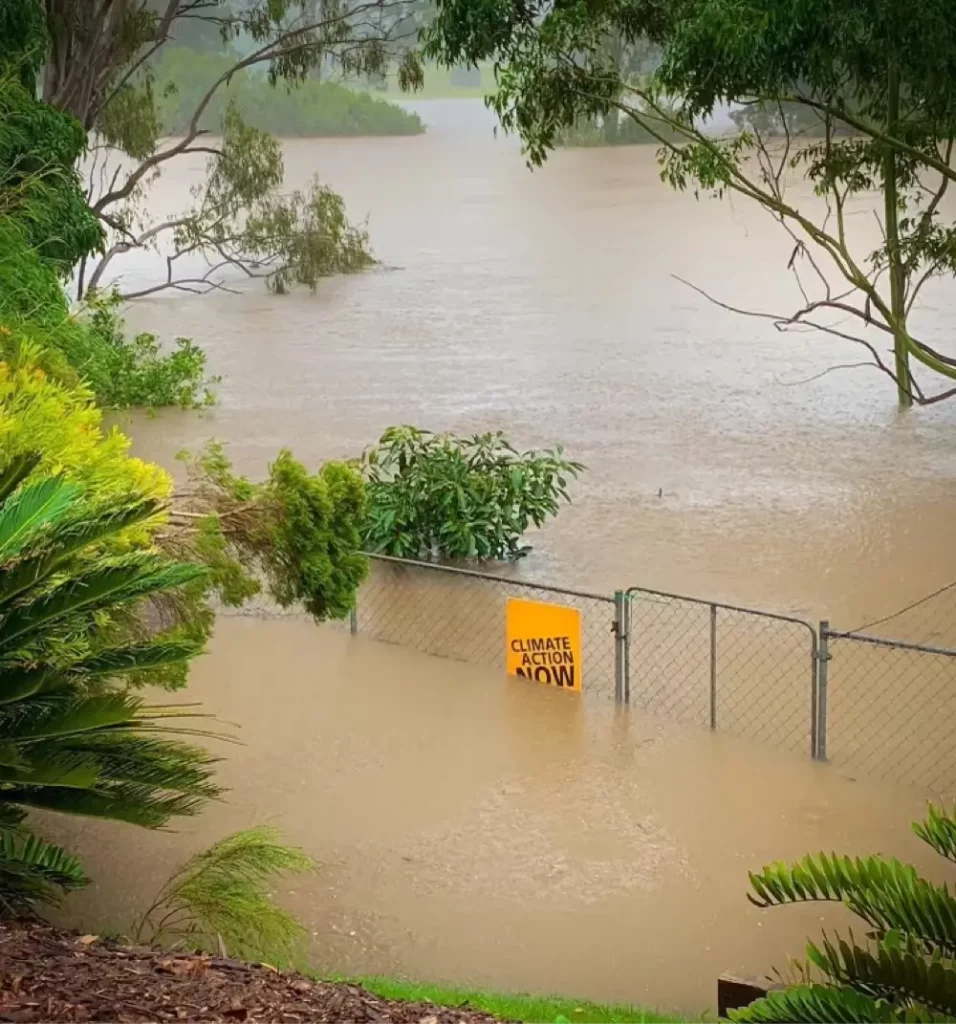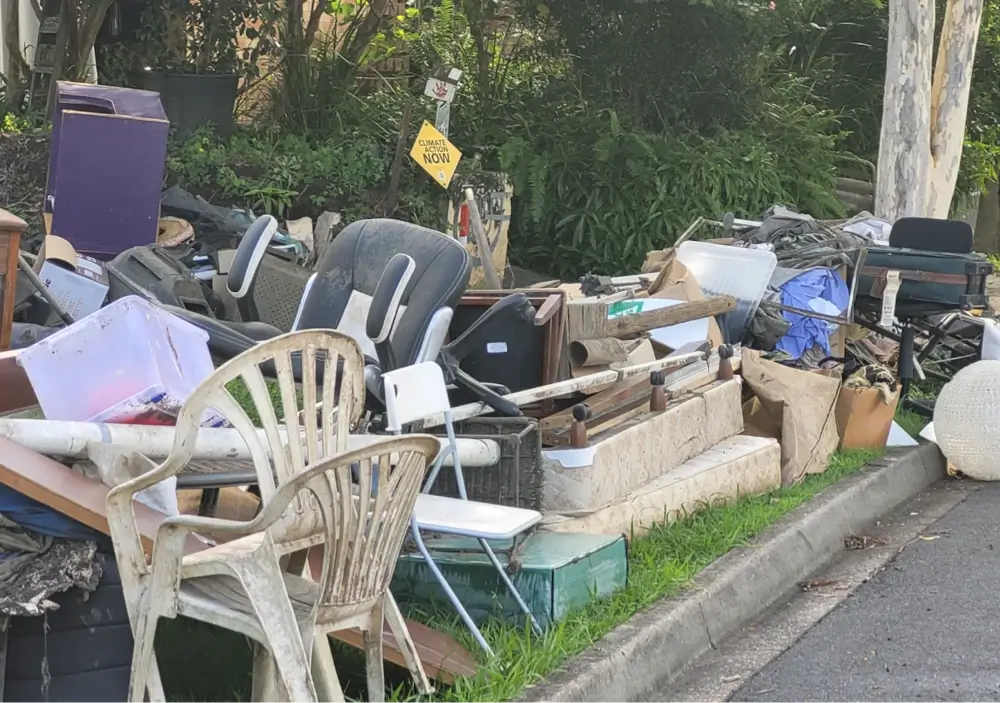The worst climate crisis in 142 years today — what does the future hold?
The world is in the grip of the worst climate crisis ever experienced. Future generations face the threat of worsening conditions, far more than what we are facing today. With over half a century of advocating and campaigning for nature, wildlife and people, ACF is making sure our work will continue long into the future to protect our only home — this incredible planet.
The devastating floods in Queensland and New South Wales highlight yet again, the reality of human-induced climate damage affecting the lives of thousands of people and causing widespread disruption to our ecosystems.
“The Brisbane River, a raging muddy torrent, sweeping away boats, wharves, ferry stations and all kinds of debris, surged through my backyard. The water has subsided but in its place now are piles of rubbish, mud covered garbage that was once loved possessions stacked high.“ said Jason Lyddieth ACF Climate Campaigner who was forced to abandon his home.

Flooding in Brisbane. Photo © Jason Lyddieth. Fence sign: Jo Fraser.
The reality of climate change has never felt more real for Jason. Reports of “unprecedented once in a hundred year” floods and fires now seem to occur every few years, the space in between these catastrophes narrowing each time, making it much harder for communities to rebuild and recover.
At the time of writing, the current floods had killed at least 21 people across two states and left many thousands homeless. Adapting to climate damage is now a matter of life or death.

For Laura Jean Mackay, who has seen the devastation of bushfires in Victoria, floods are something new. With her partner Tom, they moved to Brisbane recently but now find themselves grappling with another climate disaster. “It’s a really intense feeling to have your climate emergency fears which can sometimes seem a little abstract manifest in the huge overwhelming physical presence of a flood.”
Last week’s report by the Intergovernmental Panel on Climate Change warned that climate damage would mean Australia being hit with more frequent and severe events, such as extreme weather, fires and floods, and slow-onset events, such as changing rainfall patterns, ocean acidification and sea level rise.
The good news is that the IPCC impacts report tells us that there is still time to turn things around now and to continue our efforts to protect the planet long into the future.
1% of what you have for the planet can help ensure our future generations have a home.
For most people, making sure family and loved ones are provided for when we’re no longer here is paramount. Some of us also leave something to a cause which matters deeply. Leaving just 1% of what you have makes it possible for many of us to protect that cause which matters. Seems little, but what if we all gave just 1% of what we have to save the planet for our future loved ones, for generations to come?
That suddenly seems like a game changer. We all want our future generations to have a healthy planet to live in. Everything hinges on a sustainable planet.
ACF knows that tackling climate damage involves everyone — governments, the business sector, civil society all working together. We’ve been doing this for over half a century and we will continue to work for generations to come.
You can provide for family and loved ones while also providing for the very planet they need to live in. Just 1% of what you own will hold its value over time without the diminishing impact of inflation.
What’s your 1%?